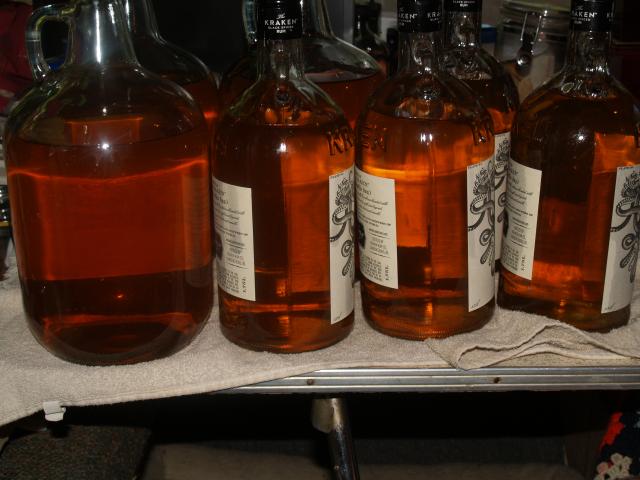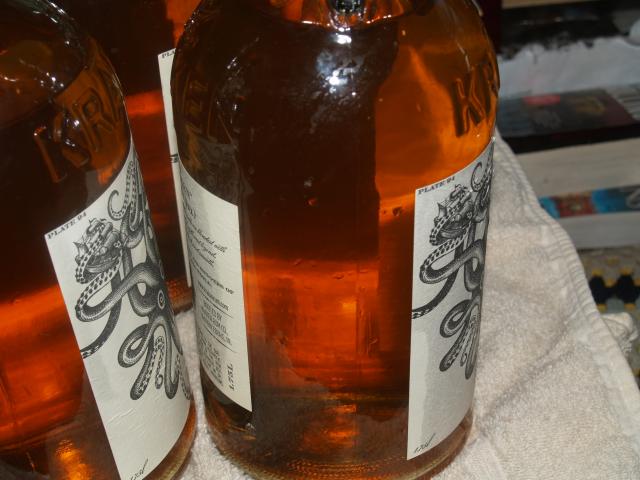- Thread starter
- #11
Dawn419
Almost Self-Reliant
We got the watermelon wine bottled yesterday! 


The color came out darker (in the pix) than it actually looks in person.
Ended up with about 4 and a half gallons. Now to let it sit for a year before we actually start drinking it.
We're taking the three largest bottles over to mom's today, to store in her canning shed since we don't have room for them here. Mom keeps the shed air conditioned so it'll do well there.


The color came out darker (in the pix) than it actually looks in person.

Ended up with about 4 and a half gallons. Now to let it sit for a year before we actually start drinking it.
We're taking the three largest bottles over to mom's today, to store in her canning shed since we don't have room for them here. Mom keeps the shed air conditioned so it'll do well there.
